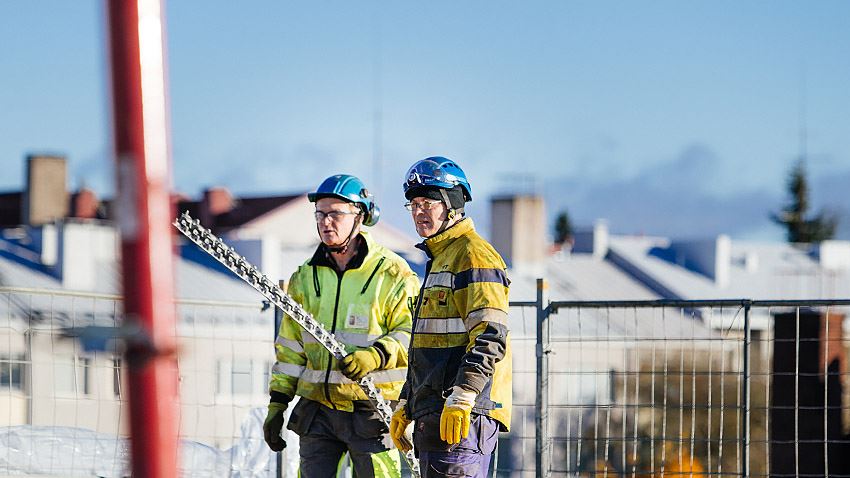- News
- Press Releases
- 3/31/2020
- YIT
Together against the coronavirus
The coronavirus (COVID-19) situation affects our business operations, partners, customers, families, friends and the entire world. We want to bear our share of the responsibility. In this article, we discuss the actions taken at YIT’s construction sites to keep everyone safe and keep the sites operational to the extent possible under the circumstances.

The restrictions caused by the coronavirus have resulted in major changes in all of our operating countries. At YIT’s offices and construction sites, we have taken the situation seriously right from the start. We have taken many different kinds of action with the aim of ensuring that our construction sites remain operational while keeping in mind that our first priority is the safety of our employees, customers, partners and families.
The coronavirus preparedness team quickly established by YIT continuously monitors the situation and provides situation-specific instructions for our employees in all of our operating countries.
We aim to comply with the actions required by the Emergency Powers Act and the guidelines issued by the authorities in everything we do.
Limiting the spread of the virus in various ways
We have instructed YIT’s white-collar employees in all of our operating countries to work remotely, when possible, and conduct group meetings online. We have implemented travel restrictions and a 14-day quarantine period for anyone returning from abroad.
Coming to work when ill — even if the symptoms are mild — is absolutely prohibited. Construction site visits by external stakeholders are also prohibited until further notice.
We have sent a letter to our subcontractors, suppliers and partners, in which we urge them to take corresponding action to prevent the spread of the virus.
We try to serve our customers normally as much as possible. The availability of digital tools means that housing transactions and renting an apartment, for example, are completely safe in Finland, even during the coronavirus epidemic. We have also increasingly shifted our customer service functions online in other countries.
Remote work implemented as widely as possible
The rapid development of the coronavirus situation has shown how incredibly flexible people are in adapting to the prevailing circumstances. Digital working methods and communication channels have played a big part in this process of adaptation, and they are now extensively used at YIT as well.
Internal meetings as well as meetings with external parties are held remotely whenever possible, and Big Room meetings, which involve monitoring the progress of projects in broader groups, have been shut down for the time being.
Whether they are normally based at our offices or our construction sites, all YIT employees who can have quickly switched to remote work. At many of our construction sites, the foremen whose presence on site is necessary have been divided into two groups that take weekly turns working remotely and on site. Substitutes have been designated for key project personnel and these people and their substitutes maintain a specific distance from each other.
Some of our site tours (audits) are also being conducted remotely.
Door access to our site offices has been minimised due to the exceptional circumstances. All available space has been turned into additional dressing rooms and washrooms to help employees avoid being in close contact with each other. Shift start times, break times and meal times have also been staggered for the same reason.
Cleaning has been increased at all of our construction sites and site personnel have been provided with guidelines related to topics such as hand hygiene, the segregation of employees while working as well as commuting*.
“Our employees have responded to the exceptional circumstances incredibly well. Everyone has learned new habits and ways of working with a good attitude and we are all doing our best to come up with new ways of taking care of things,” says coronavirus preparedness team lead Juhani Nummi.
*The actions mentioned in this article may vary to some degree between construction sites due to differences in the nature of the work, the number of employees and the working conditions.